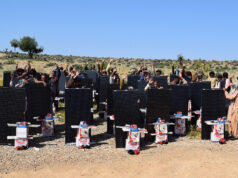 Suhail Mandukhel
Suhail Mandukhel
What is the standard to gauge the progress of a nation? Is it the number of bureaucrats? Or is it the number of doctors? The question is difficult to answer but history is telling us loudly that the number of enlightened journalists is the best determinant of progress and civility. Greater are problems in any place, greater is the importance of journalism. Unfortunately, the number of counteracting factors in our province has not let the journalism lose to voice the grievances of their people.
Best literary work, so far made to understand journalism in Balochistan, is ‘Balochistan Mein Zarh i Ablagh- Aghaz aur Irthiqa’ a valuable book written by Dr Seemi Naghmana.
Newspapers are no doubt the centrepiece of journalism, ipso facto, it should be explained in the first place. Balochistan is said to have got first printing press in 1888. The first newspaper of Balochistan was “The Quetta Gazette” that lasted for 47 years. 19 newspapers came out in Balochistan during British Raj. First Urdu newspaper Rast Go was published during First World War. Of these 19 newspapers, 13 were English publications. However, barring few, these newspapers were no more than the copycats of British Raj.
Khan Abdul Samad khan Achakzai, whose fearless resistance against British Raj alongside Yousaf Aziz Magsi through press, made him earn the acclaim of ‘Father of Journalism in Balochistan’. Abdul Aziz Kurd and Yousaf Aziz Magsi, unflinching luminaries of Balochistan, wrote against Britain in newspapers of Lahore- Zamindar and Azad. Their writings incurred the wrath of British and they were imprisoned in jail. Meanwhile in Jail, Samad Khan Achakzai and Yousaf Aziz Magsi formed the first political organization of Balochistan- Anjuman i Itihad Balochistan in 1936.
It was not until the enforcement of Indian press and registration of Books act (1867) in 1937, when locals in Balochistan were permitted to install their printing press. Istiqlal, Urdu newspaper, of Samad Khan Achakzai was first local newspaper to have been published from Balochistan. No less was the importance of Balochistan-centric papers like Al Haneef, Balochistan Jadeed and Al Baloch, though they were taken out from Sindh instead of Balochistan due to inescapable restraints. While naming prominent personalities of Balochistan, who made inexhaustible struggle in fair and vigorous contest of ideas during British rule, people like Abdul Aziz Kurd, Abdul Samad Khan Achakzai, Yousaf Aziz Magsi and Ghulam Muhammad Shahwani will always be given highest tribute for their sacrifices.
Struggle of foregoing names was the tipping point for journalism in Balochistan. It is owing to their struggle that today people of Balochistan are information-savvy. Their legacy would have multiplied with greater quantum, if the back-and-forth dictatorial rules in Pakistan had not arrested the growth of journalism in Balochistan.
National newspapers and Media Channels have their cells in Balochistan but with under-working role. Reasons are ‘censorship and obscurantism’ on the part of State to play down the ground facts in Balochistan. More than 45 journalists have been killed to date, not to mention those who have been intimidated and those who are missing. Due to this pathetic situation, Balochistan has been rightly dubbed as Black hole of Journalists.
It is against this formidable backdrop that Journalism in Balochistan is toiling to gather leverage.
Most influential paper published in Balochistan at present is ‘The Balochistan Express’ of mama Siddique Baloch who recently passed away and left behind him glaringly invaluable footprints. He launched this first indigenous English-daily in 1990 and thereof, he is known as father of modern journalism in Balochistan. Furthermore, Urdu newspapers like Daily Qudrat, Mashriq, Jang, daily Intekhab, daily Bakhabar, Daily Express and others; with varying credibility and influence; are playing journalistic roles. Balochi newspapers like Baluch Zindh, Balucea and Chagird are popular enough to catch the eyeballs of native people.
Second to print media, electronic media is struggling to settle in Balochistan. Leading news channels like Samaa, Geo and ARY have considerable presence in Quetta. In rest of Balochistan, their coverage is near to nothingness. For example, Geo news has only one active-service Chaman-based correspondent to cover the entire Pashtun belt. Due to the lack of freedom of speech, which is in fact the essential vehicle for taking the truth out, TV channels rely on superficial news only. These TV channels lack culture of follow-ups. Besides the first Balochistan-based TV channel Sabzbaat Balochistan, PTV Bolan and Khyber TV broadcast programs in local languages but these don’t command popularity among native people. Shortly, electronic media in Balochistan lacks objectivity and patronage from Punjab-dominated media centre.
Radio broadcasting is another important medium of mass communication that has been playing role in fact-finding and truth-telling. Like other mediums of communication, Radio broadcasting in Balochistan is a far cry from sophistication. There are five FM radios on air in Balochistan including Chiltan FM 88 in Quetta, FM 91 in Gwadar and Sachal FM 105. Apart from this, two government-run FM 101 Gwadar and FM 101 Quetta are providing people infotainment in their local lingoes. PBC-owned Radio stations are present in Quetta, Khuzdar, Zhob, Turbat, Sibi and Loralai. Programs broadcasted by these radio channels aren’t up to the mark and thus, have not got as yet any appreciable acceptance from public. People often switch to renowned broadcasting companies of the world like BBC Pashto/Persian, BBC Urdu, Radio Azadi Afghanistan, Voice of America, Mashal radio and Radio Afghanistan. By and large, prospects of Radio Channels are not good as it has become difficult for Radio to keep contesting in a digital world.
Last but not the least, digital journalism has been able to a large extent in holding sway over educated sections of society. Online E-papers like Balochistan point, Balochistan voices and Baloch Hal are making conducive overtures to keep people in touch with national and International news. However, digital publishing is not a child’s play. It needs an objective mental makeup.
Journalism in Balochistan needs foremost attention. For improving standards of journalism in Balochistan, following steps are inevitable.
1) Department of mass communication at university of Balochistan should be brought at par with the departments present in leading universities of Pakistan by ensuring regular classes and engaging working journalists who can teach students new trends in journalism.
2) Journalism as a subject should be included in college level curricula of FA and BA.
3) States institutes should provide press clubs and journalists with good security.
4) Journalists should be granted special allowances so that they could discharge their duties without financial distractions.
5) Digital publishing should be encouraged at the governmental level.
No-holds-barred journalism can possibly be executed in Balochistan if the state begins to consider it as an aiding legacy of enlightenment and progress rather than as a stumbling block.
The writer is a student of LL.B (E) at International Islamic University, Islamabad and hails from Zhob, Balochistan. He tweets at @SuhailMandukhel
Disclaimer: Views expressed in this article are those of the author and Balochistan Voices not necessarily agrees with them.
Share your comments!








